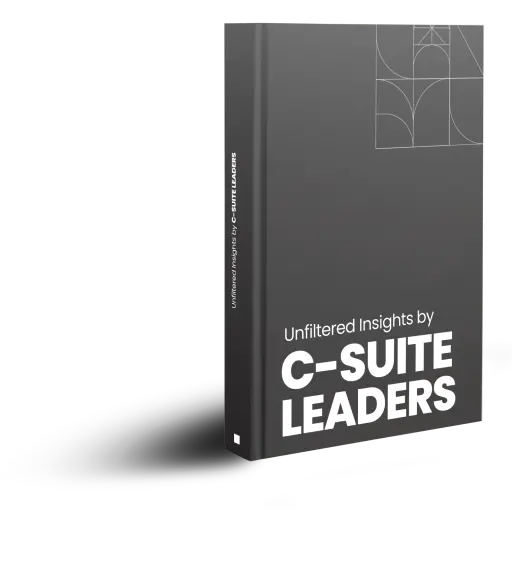
No two downturns are the same and marketers find themselves in untested waters. Whether it was the recession of 1970 or the pandemic of 2020, marketers struggled to keep up with fast-moving trends. Since the pandemic, markets have been volatile and this has affected marketing to its core.
The primary thing that enterprises did was manage the marketing investment to ensure cash flow and organic growth. In managing the investment, they distinguished between necessary and less necessary leading to budget cuts.
The shifting economy created challenges for B2B marketers and affected overall sales. To solve these challenges, marketers need to identify patterns and consumer behavior that drive performance and growth. Enterprises should understand the changing consumption patterns and alter their marketing strategies during economic shifting accordingly.
So let’s dig into the challenges B2B marketers are facing in the shifting economy and UnboundB2B’s take on it.
What are the Present-day Challenges Faced by B2B Marketers?
Small and mid-sized enterprises are putting all their efforts into establishing themselves in the industry. With the shifting economy, organizations are imposing budget cuts of as much as 20%. Marketers globally are struggling with changing strategies and resources. These cuts often result in layoffs, placing marketers in a predicament of achieving their yearly goals with diminished resources.
Now with the end of the pandemic, many marketers are left without a strategy or direction. Also with budget cuts, it is difficult to work the same way marketers made strategies before 2020. Many businesses also feel they are starting from zero with understanding what their audience needs and how to present it to them.
Moreover, sales and marketing alignment is also an ongoing challenge for marketing and sales departments. The reason why the departments don’t align is a lack of understanding of one another’s approaches and methods to conduct strategies or perform business.
Amidst the Budget Cuts, What Changes Have You Seen in ABM Strategies?
With budget cuts, what do you think will happen with ABM? The answer is it will flourish. The limited resources will require marketers to focus on even fewer accounts which means the conversion rate will be high and the ROI will increase. Apart from this, you will not focus on the less attributable parts or create strategies that will yield the results.
Marketers are shifting towards ABM as an ideal strategy at a much faster pace. Paid media was a significant outlay, but it has since seen reductions. The focus has transitioned from aggressive spending on search engines to more judicious allocations, even within ABM
For an ABM strategy to work effectively during a shifting economy, sales and marketing teams need to coordinate and make decisions as frequently as possible to avoid confusion. These meetings are a chance to analyze the results, make necessary alterations to the curated strategy, and pay attention to the changing needs of the business.
Can You Explain Marketer’s Use of Intent Data in the B2B Industry?
Intent data assist B2B marketers in understanding whether a person intends to buy your product or service. This makes it easier to nurture them when a prospect is in the research stage. A way you can nurture your prospects is by curating relevant content, personalizing messages, and making their customer journey effortless.
With the shifting economy, marketers lean more toward first-party data. Third-party intent data has its merits but presents difficulties in identifying the precise audience, especially within large corporations. For the effective utilization of third-party intent data, overlaying it onto one’s Ideal Customer Profile (ICP) for ABM can be an astute strategy, aiding in prioritizing specific accounts
ABM and intent data both work on the fundamentals of personalization strategy and campaigns. B2B intent data can identify the accounts that are looking for the products or services you are offering. You can add these prospects to the account’s list, run campaigns, and engage with them.
Can We Enhance Sales with Marketing Insights?
Sales and marketing go hand-in-hand and more often than not the alignment is missing which leads to incorrect decision-making and fewer results. Sales and marketing data is a crucial aspect of B2B marketing and having a strategy can enable operational effectiveness. By monitoring historical data within the CRM, SDRs can tailor their pitches, qualifying leads based on interactions and requirements.
Marketing trends and insights can assist in measuring the risks and challenges along with determining the strengths and opportunities. It can also accelerate building a sales pipeline and boost revenue generation. Consumer trends, behavior, patterns, and habits are something that can enhance consumer understanding in the sales team which can increase their sales with less effort. All of these insights are collected by marketing teams and are shared with sales team for better results.
Should Marketing Be Done In-House, Outsourced, or Hybrid?
More often than not this question appears and enterprises jump to the conclusion that marketing should be done in-house or outsourced. Before deciding on it, certain aspects should be considered.
These factors include:
- Cost of having an in-house marketing team or outsourcing it
- Availability of talent
- Complexity of task, industry, and offerings
- Amount of work and available bandwidth
- Time required to build an internal team
- Expertise, guidance, and right leadership
Outsourcing marketing is vital as you get the expertise and it is also cost effective. Even in the absence of economic pressures, agencies remain crucial to B2B marketing. These entities possess valuable industry knowledge and insights from collaborating with several global organizations. Instead of merely outsourcing specific tasks, B2B marketers are advised to establish strategic partnerships with these agencies.
UnboundB2B’s Expert Advice on Surviving the Shifting Economy
There is a domino effect on the economy. Once one sector improves, others follow suit. We have observed the market responding positively, with an increase in customers discussing budgets. Moreover, enterprises relating to technology and data in the B2B industry are the fastest-growing. So marketers can experiment and add digital innovation to aid customer needs and pain points to bring out the best in their enterprise to survive the shifting economy.
Listen to UnboundB2B’s expert insights on surviving the shifting economy in our podcast! 🎙️ Gain valuable strategies and tips to navigate challenges and drive results.
Our blog
Latest blog posts
Tool and strategies modern teams need to help their companies grow.

It is for fact that today's buying environment demands more. With longer sales cycles...

To build a marketing strategy that drives real results, you need more than creative i...

The 95/5 rule in B2B marketing shows that while only 5% of buyers are ready to purcha...







